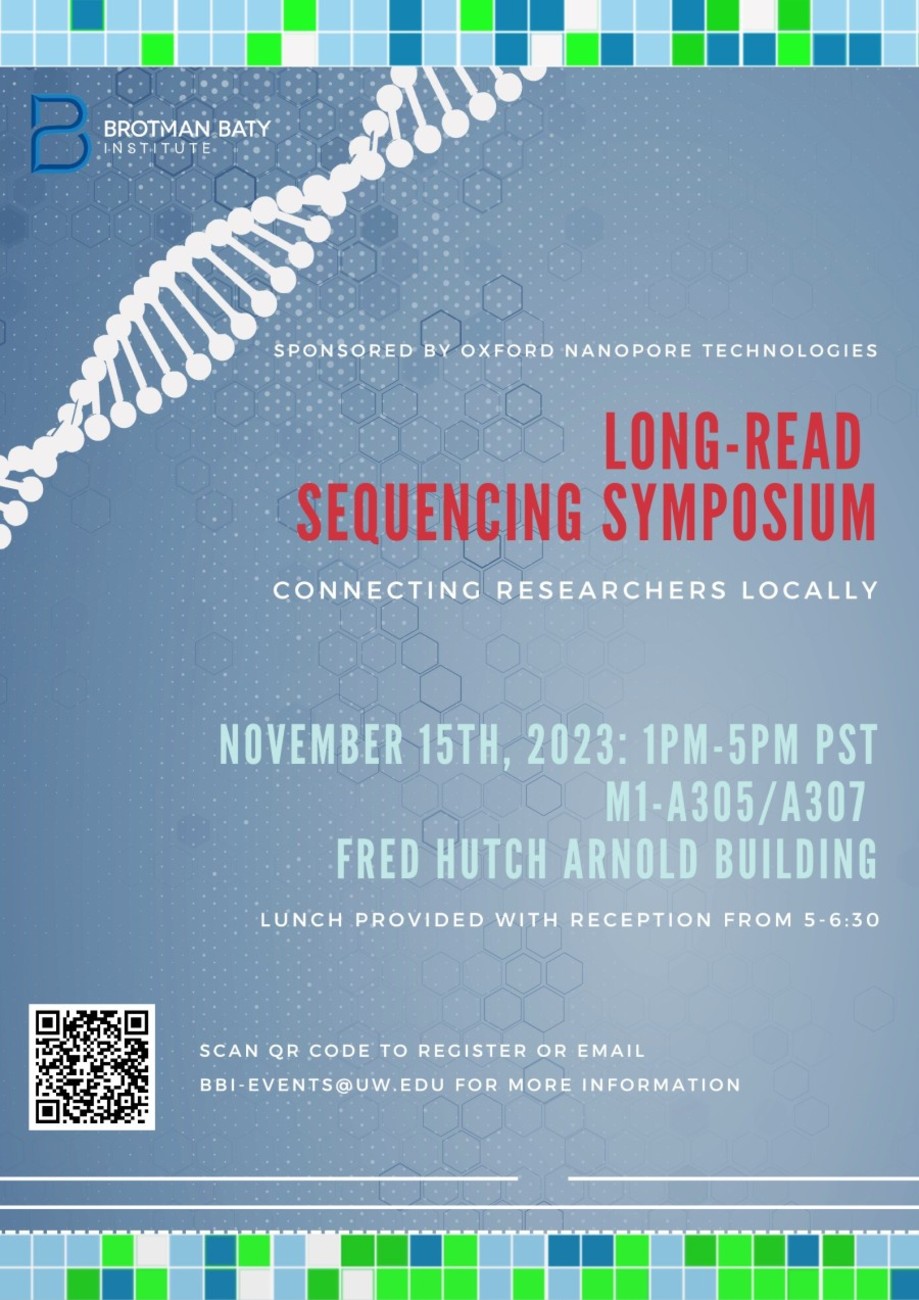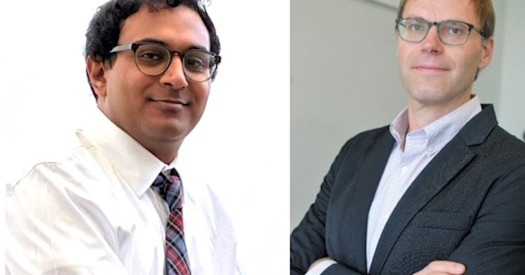
Ten speakers are confirmed for BBI’s Long-Read Sequencing Symposium on November 15 in the Arnold Building on the Fred Hutchinson Cancer Center complex. The event is from 1 pm to 5 pm, with box lunches available in advance. A reception will follow from 5 pm to 6:30 pm.
Register here; registration closes on November 7. Anyone with questions about the event, please email BBI at info@brotmanbaty.org.
“The primary goal is to bring together Seattle-area users of long-read sequencing to learn from each other, build new collaborations, and to explore potential synergies among users,” said BBI’s Dr. Danny Miller, the symposium’s scientific advisor. Topics for the sessions include:
- “Fiber tools: fast and accurate DNA-m6A calling using single-molecule long-read sequencing”
- “Massive Expansion of a Denisovan Introgressed Variable Number Tandem Repeat in Ancient Americans"
- “Quantitative full-length sequencing of the HIV-1 transcriptome in primary cell derived resting CD4+ T-cells and T-cell subsets.”
Symposium speakers represent all three BBI affiliate organizations – UW Medicine, Fred Hutchinson Cancer Center, and Seattle Children’s. They are:
- Christian Gallardo, Staff Scientist, Seattle Children’s
- Debarshi Mustafi, Assistant Professor, UW Medicine
- Jeff Nivala, Research Assistant Professor, Allen School of Computer Science and Engineering, UW
- Cate Paschal, Director, Cytogenetics and Molecular Diagnostics, Seattle Children's
- Josh Smith, Director of Bioinformatics, Northwest Genomics Center, UW
- Andrew Stergachis, Assistant Professor, Medical Genetics, UW Medicine
- Paul Valdmanis, Associate Professor, Medical Genetics, UW Medicine
- Mitchell Vollger, Post-Doctoral Researcher, UW Medicine
- Alexander Zevin, Director of Genomics, Fred Hutch
In addition, there will be a presenter from Oxford Nanopore Technologies, which is sponsoring the symposium.
'One advantage of the technology is how much more quickly sequencing can be completed and analyzed, leading to some interesting precision medicine applications.' BBI's Dr. Danny Miller
The future of long-read sequencing has the potential to transform biological sciences, as well as clinical services, according to Miller.
“Long-reads are poised to have a dramatic impact in other areas of medicine as well,” Miller said. “One advantage of the technology is how much more quickly sequencing can be completed and analyzed, leading to some interesting precision medicine applications.”


